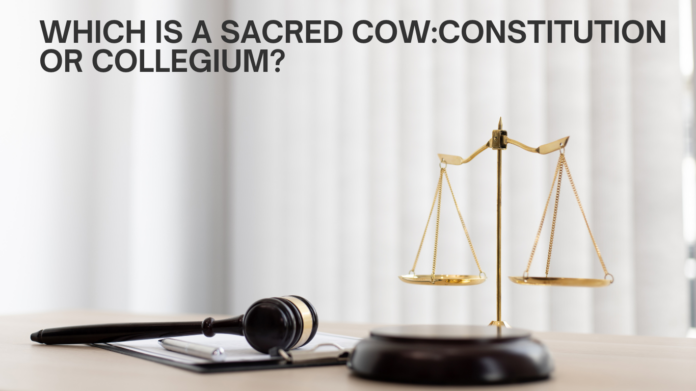As the slugfest between government and judiciary intensifies, the fight for rights between the Collegium and the Constitution takes on new dimensions, with both justifying their claims over appointments to the higher judiciary.India is the only country in the world where judges appoint judges. On the other hand, Indian politics has a deplorable history of cronyism in its appointments.
The most important aspect of a thriving democracy is maintaining a balance between the state’s organs. The current Collegium system is heavily skewed in favour of the judiciary. The system also contradicts the vision expressed by our Constitution’s founding fathers in Article 124. If legislative appointments can be challenged in court, why are judicial appointments immune from scrutiny? Which system is superior is purely subjective.
People who support the government stand or NJAC argue that it is not fair for judges to make their own selections because the chances of bias are extremely high. They also argue that when the entire premise of this Collegium has no validity everything built on top of it has no sanctity.
Those opposed to the NJAC would argue that the right should rest with the judges themselves, as they are the ones who are most familiar with the trade. It is also claimed that self-seeking politicians are always biased and cannot make an objective decision.In this debate, the most just approach is to follow the rule book, in this case the Indian Constitution. What does the Constitution state?
A simple reading of the Indian Constitution reveals that appointments must be made by the President of India, in consultation with the CJI and other senior judges. The Judiciary interprets “consultation” to mean “effective consultation,” leaving no room for any other viewpoint than what the Judges have taken.
Where do we stand as citizens of this country? We are to express our will by casting our votes and appointing a group of people. Parliament expresses the will of the people. If they pass legislation, it could be ruled ultra vires, or against the “basic features” of the Constitution. Fundamental characteristics cannot be changed indefinitely.
It is customary to arm soldiers, despite the risk that they will point the barrels in the wrong direction. The question is not whether or not NJAC exists. The questions are more profound. It is possible to avoid them for a long time, but not forever.






